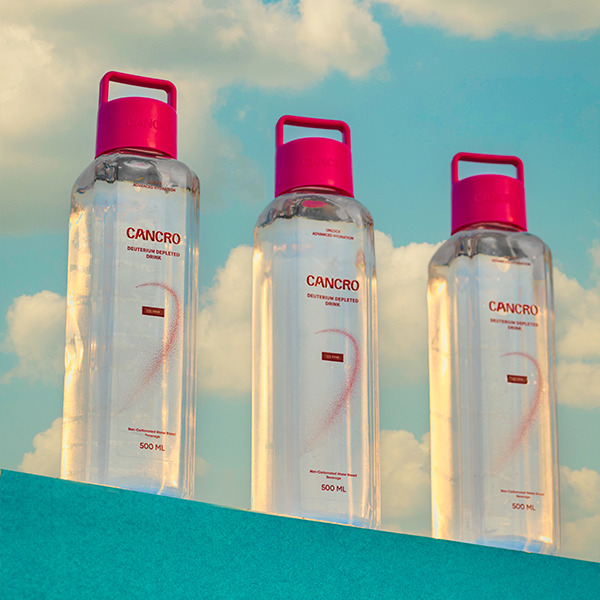Can Deuterium-Depleted Water Help Reduce Inflammation and Oxidative Stress?
Deuterium-depleted water (DDW) lowers cellular oxidative stress and improves antioxidant defenses in preclinical models.
DDW reduces systemic inflammation by lowering pro-inflammatory cytokines and protecting organ tissues from immune damage.
Studies in rats and mice show improved survival under septic, toxic, and radiation-induced stress conditions after DDW intake.
DDW remains well tolerated and non-toxic, supporting its consideration as a preventive or adjunctive strategy in inflammation-driven conditions.
Understanding the Problem: Oxidative Stress and Inflammation
Inflammation and oxidative stress are deeply embedded in nearly every chronic disease pathway. From cardiovascular disease to neurodegeneration to diabetes, these two factors accelerate tissue damage, impair recovery, and increase long-term risk.
Oxidative stress occurs when the body produces more reactive oxygen species (ROS) than it can neutralize. Inflammation is a biological response to injury or insult, but when it becomes chronic, it causes more harm than good. Together, they create a feedback loop that depletes mitochondrial function and overwhelms cellular defense mechanisms.
Deuterium, a naturally occurring hydrogen isotope, plays a subtle but influential role in these systems. Present at around 150 parts per million in regular water, deuterium alters how enzymes, mitochondria, and proteins function at the molecular level. Reducing the deuterium content in body water may offer a novel way to support healthier metabolic responses to stress and inflammation.

“Deuterium-depleted water lowers oxidative stress, boosts antioxidant enzyme activity, and reduces pro-inflammatory cytokines like TNF-α and IL-6. Studies show protective effects in liver, kidney, and brain tissues under toxic and inflammatory stress.”
Study by
Qu J · Xu Y · Wu J · Rasooli M · Bayrak S · Dzhimak S
How Deuterium-Depleted Water Works Against Inflammation
It Reduces Reactive Oxygen Species
Mitochondria are the largest source of ROS in the body. When deuterium levels are high, mitochondrial proton transfer becomes less efficient, and more electrons leak into surrounding tissues, creating oxidative stress. In laboratory studies, cells cultured in DDW produced significantly lower levels of ROS even under chemically induced stress.
One study on PC12 neuronal cells found that exposure to DDW reduced ROS generation by over 40 percent following hydrogen peroxide exposure. These results suggest that the lower mass of protium allows for more precise proton movement and less energy loss within the cell.
It Enhances Antioxidant Enzyme Activity
Beyond reducing oxidative production, DDW appears to boost the body’s ability to fight back. Animal studies have shown increased activity in antioxidant enzymes such as superoxide dismutase (SOD), catalase, and glutathione peroxidase following DDW intake.
These enzymes are responsible for neutralizing ROS and maintaining redox balance. Improved enzyme activity suggests that DDW creates an intracellular environment that favors repair and detoxification over damage and decay.
It Suppresses Inflammatory Cytokines
In models of immune activation, DDW has been shown to reduce the expression and circulation of key pro-inflammatory cytokines. These include tumor necrosis factor alpha (TNF-α), interleukin-1 beta (IL-1β), and interleukin-6 (IL-6), which are elevated in almost every form of chronic inflammation.
In a rodent model of sepsis, DDW-treated animals had lower levels of all three cytokines and showed improved organ function and survival. These reductions suggest that deuterium content influences the signaling cascades that drive immune overactivation.
Get started with advanced hydration in your everyday regime
Get Cancro Today
Early Human Signals and Observations
Formal clinical data is limited, but preliminary evidence from small-scale observational studies suggests potential benefit in humans. In individuals with occupational heavy metal exposure, daily consumption of DDW improved antioxidant profiles and lowered markers of inflammation.
Some clinicians have used DDW supportively in cases of chronic fatigue, autoimmune symptoms, and recovery from infection. While anecdotal, these patterns align with the protective effects seen in preclinical models and support the call for further investigation.
Why This Matters for Long-Term Health
Most anti-inflammatory treatments focus on managing symptoms or suppressing immune function. DDW offers a different approach. By shifting the intracellular isotope ratio, it appears to help cells function more efficiently and resist inflammatory overload.
This type of support is especially relevant in chronic conditions where inflammation is persistent but not easily targeted. It may also serve as a preventative intervention in people with high exposure to environmental toxins, oxidative stress, or systemic inflammatory risk.
Conclusion
Deuterium-depleted water is not a drug. It does not suppress immune function or block inflammation in the traditional sense. Instead, it alters the biochemical environment in which inflammation occurs. That makes it a promising tool for preventing and managing chronic inflammatory stress.
The evidence to date supports a role for DDW in improving antioxidant balance, lowering inflammatory signaling, and protecting organs under oxidative pressure. Given its safety and systemic effects, DDW deserves further research as a next-generation metabolic intervention.
References
Qu, J., Xu, Y., et al. (2024). The biological impact of deuterium and therapeutic potential of deuterium-depleted water. Frontiers in Pharmacology.
Wu, J., et al. (2020). Deuterium-depleted water reduces oxidative stress and protects PC12 neurons.
Rasooli, M., et al. (2019). Protective effects of DDW against sepsis-induced organ failure in rats.
Bayrak, S., et al. (2022). DDW mitigates liver injury in carbon tetrachloride models.
Dzhimak, S., et al. (2018). Genomic stability and detoxification benefits of deuterium-reduced environments.


